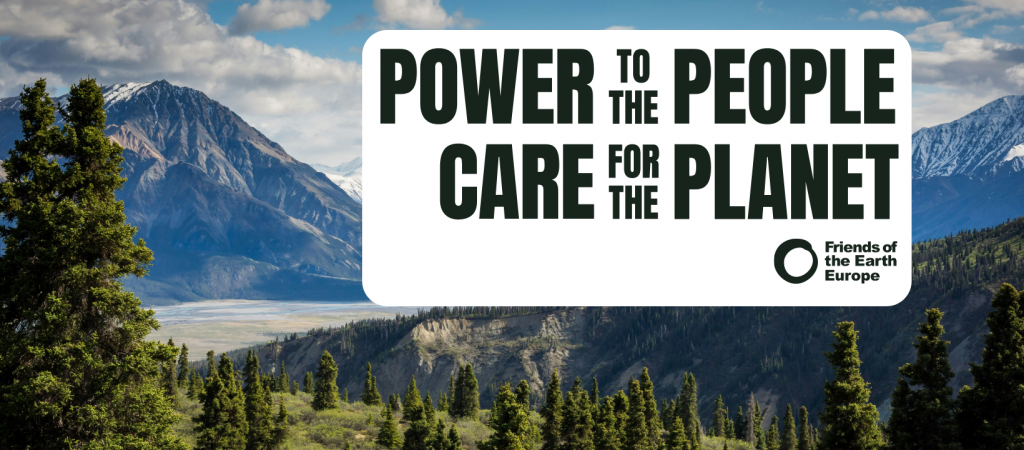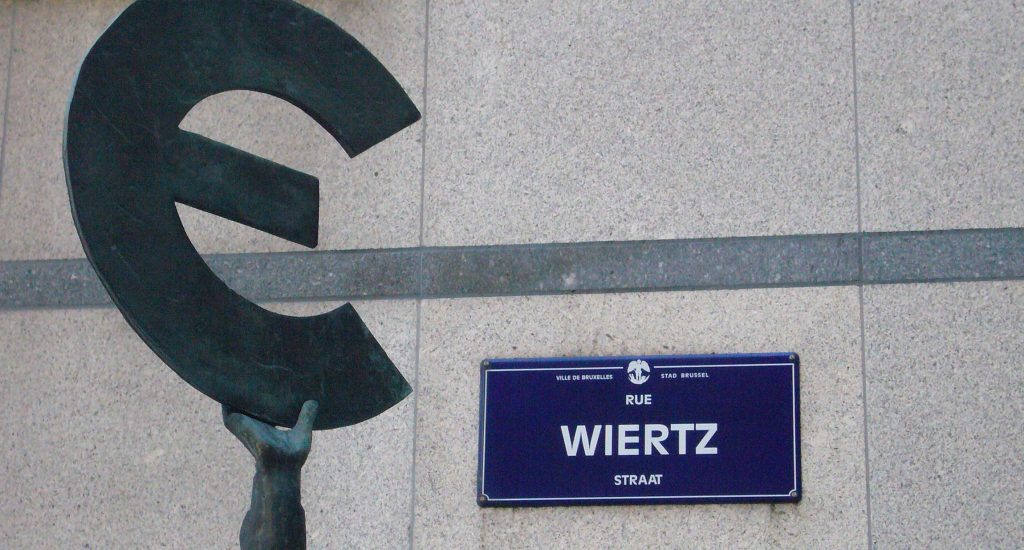Our analysis of the 2024-2029 European Strategic Agenda
The European Council has just adopted the Strategic Agenda for 2024-2029. This important roadmap outlines the EU’s vision for the next five years. It describes the vision decisionmakers have in order to create a strong and sovereign Europe that addresses climate change, promotes digital transition, and strengthens defence and security.
Unfortunately, their vision falls short on the radical change Europe needs to tackle the ecological and social emergencies we face. As the EU stands in front of an iceberg of crises, our societies need EU leaders to put social justice at the core of their climate and environmental agenda, and reject the influence of corporate lobbyists pushing for an anti-green industrial deal.
FoEE highlights three opportunities for the newly elected European Parliament to ensure that social justice is at the heart of the green transition: eliminating energy poverty, making farming sustainable, viable, and fair, and moving from a resource-intensive growth economy to a well-being economy.
Eliminating energy poverty
The Strategic Agenda confirms the EU’s commitment to becoming the first climate-neutral continent by 2050 – although the ‘pragmatic’ climate action approach foreseen raises many concerns. The document also fails to set out a vision to finally end Europe’s reliance on fossil fuels. A further blind spot is that while it aims to ‘reduce inequality’, it fails to offer a tangible plan for tackling the social dimension of the climate crisis, apart from scaling up Europe’s manufacturing capacity and the consequential creation of jobs. This is not enough to address one of the block’s biggest and most pressing climate related issues: energy poverty. Energy poverty affects over 50 million people in the EU who are not able to heat or cool their homes due to structural inequalities and an energy system that prioritises profits over people, and a building stock that is outdated, energy inefficient and damaging to people’s health. It is not just about unaffordable energy bills but it is also about public health and the cost attached. Over 15% of EU citizens live in a house that is damp, leaky and mouldy, which comes with a hidden health burden of almost 100.000 premature deaths.
The past EU mandate made some waves in addressing the issue through banning energy disconnections, unleashing a renovation wave and offering short-term subsidies in response to the energy crisis and the war in Ukraine. However, many of these solutions have not been targeted to those who need it the most, while others will only address the symptoms of energy poverty. A just energy transition will only be possible if it prioritises the most vulnerable people and protects them from being locked-in to fossil fuel heating and cooling systems, high energy bills and renovictions — evictions due to landlord’s putting the prices up after a renovation or ask tenants to leave the property during the renovations process. The EU needs to invest in the coming years to make energy efficiency measures understandable, affordable and accessible to all Europeans and it must offer more targeted funds to governments so that they can roll out tailored programmes to protect and support their citizens, to implement the energy transition, including deep renovations and access to renewable energy, as well as energy sharing.
Making farming sustainable, viable, and fair
Per the Strategic Agenda, the EU will “promote a competitive, sustainable and resilient agricultural sector that continues to ensure food security” – but much remains to be done on sustainability and resilience. EU agricultural policies have so far largely failed to move beyond industrial production and greenwashing initiatives. This year’s farmers protests have exposed the failings of a model left in the hands of an agroindustry that is impoverishing farmers and trapping them into practices harmful to their health and that of their families and neighbours. It is time to address the real issues faced by farmers, including fair incomes and workers’ rights, instead of watering down environmental and biodiversity protection policies.
Concretely, this means reforming the Common Agricultural Policy so that it truly supports t the transition to agroecology and moving away from industrialisation of the sector. The CAP, which receives nearly a third of the entire EU budget, has the potential to profoundly change how we farm and provide food in Europe in ways that can mitigate climate emissions, protect biodiversity, reduce the control of big corporations over the food chain and stop the disappearance of family farms. But despite the substantial funding within the CAP, currently, 80% of it benefits the top 20% of the biggest landowners.
Moving to a well-being economy
The Strategic Agenda prioritises economic growth, competitiveness, and technological advancement, but fails to mention the impact on the EU’s already excessive material footprint. Overexploitation of natural resources, in the name of economic growth, is a root cause of the polycrisis we face today: climate breakdown, biodiversity collapse, pollution, and social injustices. If the EU truly aims to move to a fair and sustainable economy, it must address its material overshoot and adopt policies towards sufficiency and resource use reduction. This means ending the obsession with GDP and focusing more on most people’s immediate needs such as affordable housing, improved health and mobility, and quality products. A well-being economy that is also resource-intelligent includes for instance social housing, rather than predatory real estate speculation; accessible public transport, instead of traffic jams of private vehicles; and circular products that do not lead to a mountain of waste.
The European Parliament election results are a reminder that the people are yet to see the real-life benefits of the European Green Deal. While people across Europe are strongly concerned with immediate issues, notably the cost of living, millions of Europeans are still demanding urgent action on the climate and biodiversity crises. Social justice must be the red thread of the green transition. For the transition to meet people’s needs – and to get everyone on board – promises must be backed up by massive investment and mobilisation of resources at an unprecedented scale. We expect no less from EU leaders than swift, inclusive and bold social and economic change-making.







